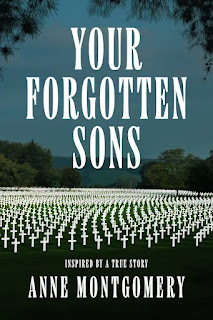C.D. Hersh's Blog, page 13
February 3, 2025
Tell Again Tuesday Writing Workshop
Six Weeks to Breakout Success With Literary AgentBy Donald Maass

“When readers feel strongly, their hearts are open. Your stories can not only reach them for a moment, but they can change them forever.” Donald Maass
FROM FREE EXPRESSIONS SEMINARSAND LITERARY SERVICES
Join us for our VIRTUAL BREAKOUT NOVEL INTENSIVE
with literary agent Donald Maass
New 2025 Sessions Added . . .
For the rest of the blog go to:January 30, 2025
Friday Feature No Internet! What’s A Girl To Do?
 Several months ago, my internet was finicky. It went on and off several times each day. I considered that, since it’s summertime, perhaps lots of people were home sucking up those internet resources.
Several months ago, my internet was finicky. It went on and off several times each day. I considered that, since it’s summertime, perhaps lots of people were home sucking up those internet resources.
But then the internet went out completely. After a few hours, I called my provider. I always get a tickle out of the recorded message telling me that, if I’m having problems, I should go online and check the company’s website.
“But I have no internet!” I wanted to scream at the robotic voice that kept steering me away from contact with a real human.
After being disconnected for no apparent reason—maybe I said something to offend the AI operator—I tried again.
“Our wait times are currently very long,” the voice explained.
I didn’t hang up.
“Just a reminder, you can go to our website…”
I wanted to throw the phone but held my ground. After a about ten seconds of silence, the voice said, “You’re still there.”
I jumped! It sounded like an accusation.
“Let me get someone to assist you.”
I let out a breath. After a conversation with a real person, I learned that, indeed, the service was down all over my neighborhood. They hoped all would be well at about 6:00 PM that evening.
But twenty-four hours later, I still had no access to the Web. After standing around with my hands in my pockets wondering what to do, I tried to remember what life was like before we all became addicted to e-mail and social media and instant messaging. And I considered the number of times each day I would run to check if I’d missed something vital.

Ah…good old snail mail. Remember how exciting it was to get something with your name on it?
You know…like some huge publisher wants my newest book.
Or Netflix is interested in producing an eight-part series on my fabulous life.
Or some impressive university wants to bestow upon me an honorary doctorate for my literary brilliance.
Then, I had to admit that generally I find nothing horribly important in my daily correspondences. And yet, I can’t help myself. I remember a similar feeling each day when I was a kid anticipating the mail, the kind with paper and ink and stamps. (For you youngsters, Google it.) But back then we understood the mailman only arrived once a day, a vast difference from our current 24-hour model, that has many of us desperately seeking…I don’t know…some kind of validation, maybe.
I checked the mail on my phone—not so easy since I have four accounts—and confirmed just how unimportant I am. I tried to deal with my social media accounts, but dislike working on the tiny screen, so I put the phone down.
It was in the evening that the horrible reality hit. No streaming! There we were in Season 6 of Peaky Blinders with no access. We were forced to try TV from the antennae, compelled to sit through endless commercials. I wanted to weep.

Okay! I feel better now.
Yep, I’m a spoiled brat.
Later, I considered what I might do instead of “working” online. I closed my eyes and considered the things I do for joy: bake brownies, read a book, call a friend, play my guitar, plan a nice meal, see what’s still eatable in the garden, go for a swim.
When I opened my eyes, I was embarrassed, because I realized what I needed to do: Be grateful for what I do have.
Still, right now, the brownies are winning. So, pardon me while I go mix up a batch.
 Here is a brief peek at Anne’s latest release.
Here is a brief peek at Anne’s latest release.
Bud Richardville is inducted into the Army as the United States prepares for the invasion of Europe in 1943. A chance comment has Bud assigned to the Graves Registration Service where his unit is tasked with locating, identifying, and burying the dead. Bud ships out, leaving behind his new wife, Lorraine, a mysterious woman who has stolen his heart but whose secretive nature and shadowy past leave many unanswered questions. When Bud and his men hit the beach at Normandy, they are immediately thrust into the horrors of what working in a graves unit entails. Bud is beaten down by the gruesome demands of his job and losses in his personal life, but then he meets Eva, an optimistic soul who despite the war can see a positive future. Will Eva’s love be enough to save him?
Praise for Your Forgotten Sons
“Although a defty crafted work of original fiction, “Your Forgotten Sons” by Anne Montgomery is inspired by a true story. An original and inherently interesting read from start to finish, “Your Forgotten Sons” will prove to be an immediate and enduringly appreciated pick.” Midwest Book Review
“This was a quick, riveting read that really challenged me to think differently about our servicemen and women, especially those who take on the jobs that don’t get heroically depicted in the media or news…I really highly recommend this book to anyone that is looking for a different take on American history. I left it with a newfound appreciation for the unsung heroes.” Bekah C NetGalley
“This is the truth. It’s gritty and painful and bittersweet – and true. When you think you’ve read every perspective of WWII, along comes Bud to break your heart.” Bridgett Siter Former Military Reporter
“Anne Montgomery writes a strong story and I was hooked from the first page. It had a great concept and I enjoyed that this was inspired by a true story…It was written perfectly and I was invested in the story. Anne Montgomery has a great writing style and left me wanting to read more.” – Kathryn McLeer NetGalley
Available at Amazon, Apple Books, Barnes &; Noble, Google Books, and Kobo
Anne Montgomery has worked as a television sportscaster, newspaper and magazine writer, teacher, amateur baseball umpire, and high school football referee. She worked at WRBL‐TV in Columbus, Georgia, WROC‐TV in Rochester, New York, KTSP‐TV in Phoenix, Arizona, ESPN in Bristol, Connecticut, where she anchored the Emmy and ACE award‐winning SportsCenter, and ASPN-TV as the studio host for the NBA’s Phoenix Suns. Montgomery has been a freelance and staff writer for six publications, writing sports, features, movie reviews, and archeological pieces.
When she can, Anne indulges in her passions: rock collecting, scuba diving, football refereeing, and playing her guitar.
Learn more about Anne Montgomery on her website and Wikipedia. Stay connected on Facebook, Linkedin, and Twitter.
January 28, 2025
Wednesday Special Spotlight Cowgirls in the Kitchen
Fifty years ago, when I was newly married and newly pregnant with my first baby, I joined La Leche League for all their collective wisdom and encouragement with breastfeeding. Not only was their focus on nursing babies, they stressed nutrition, too, for ourselves and for our families.
Those ladies were some of my best friends for many years, and they were great cooks, too. One of them shared her Grape-Nuts Bread recipe, which . . .
For the rest of the blog go to:January 27, 2025
Tell Again Tuesday The Turn of Time
As we flip the calendar to 2025, we remember the turn of the millenniumBy Bob Berman

As the year 2025 approaches, relatively few people ponder the significance of the date’s digits or lose any sleep over it. Still, we’re accustomed to dividing stuff into quarters, which is why married couples celebrate 25- and 50-year anniversaries with far more fanfare than, say their 31st year. The year 2025, which marks the first quarter of the new century, has potential significance.
Thankfully, this has not yet . . .
For the rest of the blog go to:January 23, 2025
Friday Features Tips for Brainstorming
The Merriam Webster Dictionary defines the word brainstorm as: a sudden inspiration or idea. I don’t know about you, but the brainstorming we’ve done for our book The Promised One and the subsequent series The Turning Stone Chronicles was not a sudden inspiration or idea. We tossed ideas around for several hours before we hit on a title for the series. Then we spent more time brainstorming the world, the plot, our characters, and the various books. Along the way we discovered some tips for effective brainstorming that we’d like to share. 
1. Everything is fodder for an idea, no matter how bad it might sound at first. If you tweak it enough, you might be able to use it.
2. Two heads, or even three are better than one.
3. Invite a non-writer to participate. They might have a different take on the subject.
4. Ask “what if…” , then ask it again, and again.
5. Throw the first five thoughts out. They were the easiest to come by so they may not be the best solutions.
6. Keep good notes. Scribbled shorthand, or half written sentences might not mean much if you don’t get writing right away.
7. Make sure you have snacks, and water on hand. All that thinking and talking makes one hungry and thirsty. Besides, feeding your brainstorming participants is only polite since you’re picking their brains.
8. Ask why? Why would he do that? Why doesn’t the idea work? Why can’t the sky be green?
9. Think outside the box, turn it upside down, on its side, or dissemble it to find new solutions and ideas.
10. Reread what you already have. The solution to the problem may already be hidden in those pages.
Plus a bonus:
Don’t permanently delete a brainstorming thought. You never know when it might come in handy for something else.
Have you ever used brainstorming?
January 21, 2025
Wednesday Special Spotlight Character Fears
We all have skeletons, secrets, and phobias in our lives—scary things that have the ability to cripple us or change our lives for better, or for worse.
Superman fears Kryptonite. Mermaids are afraid of being too far from water. Vampires, at least the old-fashioned ones that turned to ashes in sunlight instead of sparkling in it, fear the sun. The unwilling werewolf dreads the coming of the full moon. Adventurer Indiana Jones hates snakes. The Wicked Queen is afraid of not being the fairest of them all. Peter Pan doesn’t want to grow up. Gizmo is frightened of water or eating after midnight, because it turns him into a gremlin. Bruce Banner never wants to get angry because he turns into the Incredible Hulk. All these characters’ fears and secrets are basic to their core behaviors. They act and react, just like we do, because of life’s skeletons, secrets, and phobias.
Our fears are part of what makes us who we are. They shape us, influence us, and affect our actions and the outcomes of what we do. When we give our characters secrets and phobias we give them depth. If you want to make your character grow, one of the best ways it to have him face his fears. Give him something more important to face, some reason to conquer that phobia, secret, or skeleton he fears so much.
I’m not crazy about heights. I approach the edges of railed canyons with trepidation, if at all. I never look down when descending ladders. I won’t dive off of a board any higher than twelve inches off the pool edge. A climb onto the kitchen counter to get something off the top of the cabinet, which I’ll only do if no one else is around to do it for me, leaves me sweating like I’ve got dengue fever. As for bunging jumping … you’ll never see me do that. If I can avoid any height, I will do so.
Yet one year, when we were putting an addition onto our house, I had to conquer that fear. Before starting the building process I told my husband I would do anything but get on the roof and shingle. I’d haul anything he needed, work as long as he needed, do whatever messy, dirty job came my way. But I was NOT going to get on that roof.
He was okay with that. But when we tore the roof off to put up the knee wall an unexpected storm blew in. We scrambled to get a tarp on the open area, but the rain blew in anyway.
Guess where I ended up for the seven days?
On the roof. Reshingling.
Before the next predicted rainstorm blew into town.
As much as I feared heights, when the kitchen ceiling started sagging from the water damage, I was more afraid of seeing the ceiling cave in than of getting on the roof. I managed to conquer my fear of heights in an emergency situation, much like Indiana Jones grabbed that big snake’s tail, after a good bit of screaming and yelling, when the alternative was being sucked into quicksand. I grew that summer into someone who was confident that in an emergency I could climb up a tree or on the roof, or up a ladder to rescue someone from a burning building.
That’s what facing scary things, secrets, and skeletons can do for your characters. It can make them stronger and provide a character arc that moves their story forward. So don’t be afraid to frighten your characters. Make them face their worst fears. Rattle a few closet skeletons and blab a few of their deepest secrets and watch them grow. Because, as my mother used to say, if it doesn’t kill you it can only make you stronger.
What are your characters afraid of?
January 20, 2025
Tell Again Tuesday Resolutions and Goals
The Mirror and the ArrowBy Donald Maass

Have you made your New Year’s resolutions? Good for you! And good luck! May your resolutions prove easy to enact and the year ahead be a year of fulfillment.
Resolutions and goals are good, but today I have a different New Year’s challenge to bring to you. It’s a list of questions, the point of which is to help you refine your moral inventory as a storyteller. “Moral inventory”? What is that, a step in some writing addiction recovery program?
No, it’s a way to . . .
For the rest of the blog go to:January 16, 2025
Friday Feature Five Common Plot Problems
There have been volumes written on plot. After all, it is a critical element in every story. While I don’t claim to be an expert on the subject, I have picked up a few pointers on my journey in the writing world. Here are five common plot problem I’ve encountered and ways to solve them.
1. Starting in the wrong place:
Begin where the trouble begins. This doesn’t mean you can’t have a prologue, but you’d better be sure it relates to where the trouble started. Take out those 20 pages of back story telling us how Betty Sue wasn’t getting along with her ex and how they finally got that divorce. Instead, do something like Jennifer Cruise did in one of her books where the heroine finds a pair of underwear in her husband’s car—and they aren’t hers! No need to tell us the couple has been having marital problems. The panties say it all.
2. Having a weak conflict:
Conflict doesn’t mean constant bickering between your hero and heroine. Strong conflicts must have consequences and the conflict and consequences must move the story forward. If your characters can work out the problem if they just talk or can walk away from their problems then your conflict is too weak. The conflict must force them to stay together. If you let them walk away at any point you must create a complication that forces them back together.
3. A predictable plot:
A predictable plot has no surprises. We’ve all read and seen predictable plots in books and movies. You know where the story is going. You can guess who committed the murder. While stories like that can be enjoyable, I get the most pleasure out of a story that makes me say, “Wow, I didn’t see that coming.” To avoid predictable plots try making a list of 20 things that could happen, then eliminate your first five items. Those are usually the most predictable things. Make sure you leave a subtle hint that foreshadows the unexpected event so the reader won’t feel cheated with the surprise. You want them to be able to go back and say, “Yeah, I see where the author set that up. It was clever.”
4. A plot that moves too slowly:
When your plot moves too slowly you usually have a pacing problem. Try solving the problem by adding subplots. Braid the subplots into the main story so all the plots interact with one another. Each plot line, main and subplots, need three turning points spaced approximately ¼, ½ and ¾ way through the book or through each plot line. Add twists and turns in the story to keep it going. You can also step up the pace of the story with shorter scenes and chapters, breaking up paragraphs to put more white space on the page and making sure there is tension on every page.
5. An ending that doesn’t satisfy:
An ending that satisfies can sell your next book, because if your reader feels cheated by your ending it’s likely they won’t give you another chance. For romance readers this mean a happily-ever-after ending, or at least the promise of one. Be sure to tie up all your plot lines before the end of the book. Generally, the last plot line to be established is the first one to be completed. With romance, you want to solve all the other problems before you solve the romance.
Do you have trouble with plotting?
January 14, 2025
Wednesday Special Spotlight Six Ds of Dialogue
Dialogue is paramount in any story. Dialogue is the backbone of stage plays and screenplays, and is what actors memorize. Dialogue is the hinge pin of novels, especially in today’s fast-paced, want-the-story-to move-forward world. Yet, for many writers dialogue is the hardest thing to write. We can fill pages upon pages with purple prose, narrative, and information dumps, but often avoid dialogue.
Why? Maybe we’re afraid our characters will sound stupid, or their words will be stilted. Perhaps writers fear their characters will sound flat, or they will say too much or too little. Or maybe we think our characters will sound the same, because, after all, it’s only one person creating all those different voices.
Personally, we find ourselves writing dialogue first then going back and filling in the narrative, the senses and other parts of the story. Maybe that’s because of our acting or playwriting background. Sometimes we must scrap the dialogue, having discovered some of the problems mentioned above. At any rate, along our writing journey we’ve picked up a few tips to help with writing dialogue that we’d like to share with you. We hope you find them helpful.
Six Ds of Dialogue:
1. Deliver content. Every word, every scene, every sentence in your book should move the story forward. Dialogue is part of that forward motion. Use dialogue to propel your story forward by revealing new obstacles, introducing pivotal moments in the plot, reminding the character of goal, and deepening emotions. Don’t waste words on unnecessary stuff like greetings, talk about the weather, discussion about the song on the radio (unless it will figure in the story later) or idle chit chat inserted to fill time or make up word counts. Get right to the point.
2. Differentiate voice. No one person sounds like another. The way my sister pronounces the word “picture” is unlike anyone else, and I’d recognize her voice anywhere. Make sure your characters’ voices are just as distinctive. Give them different cadences, different speaking styles, different words, different sentence lengths. Listen to people speak and use those nuances in your characters’ dialogue.
3. Define tone. Dialogue sets the mood for your story just like narrative does. Characters in a humorous book sound unlike those in a horror book. Chick lit dialogue is very different than that of a hard-hitting cop drama, and a magically based book’s characters would certainly not sound like the teenage characters in YA novel. When creating your characters’ dialogue make sure you take the tone of the book into consideration.
4. Drop in description. Normally, writers use blocks of narrative to describe setting and provide background information. By dropping bits of description, background, or historical information into dialogue you can let the reader learn what he needs to know at that moment in the story.
5. Don’t be didactic. Providing information in your story is important. Just make sure you don’t drop so much description and background into the dialogue that you turn what should be quick, informative conversations into dialogue description dumps.
6. Dial up the conflict. Use your conversations to create tension and suspense. Speed up the scenes by eliminating most of the description and explanations. Make sentences short and fast. Make the conflict and risks clear, but hold back some information so suspense remains high.
If you have trouble writing dialogue, try writing the first draft of your scene as a script. No narrative, just dialogue. Then read it out loud to see how it sounds. You’ll be surprised at the results.
Is dialogue hard for you to write?
January 13, 2025
Tell Again Tuesday How Did the Tradition of New Year’s Resolutions Start?
The Interesting History Behind New Year’s ResolutionsBy Catherine Boeckmann

New Year’s resolutions actually go back to ancient times! So, before you pooh-pooh the idea, let’s explore what’s behind this tradition and more practical ways towards self-improvement. Plus, we also compare the top 10 resolutions from the 1940s to those of today! Are you surprised?
Short History of New Year’s Resolutions
From the Babylonians who . . .
For the rest of the blog go to:


